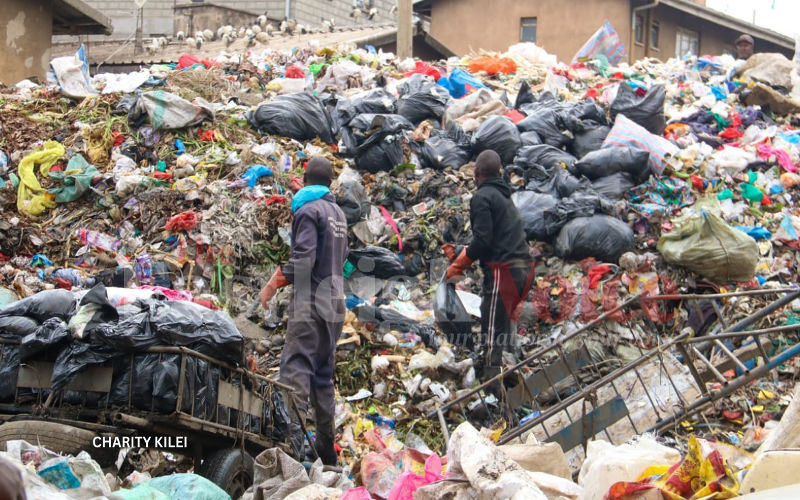UN sounds alarm over Nairobi’s mounting garbage crisis

This means nearly 40 per cent of households are surrounded by uncollected trash, a situation that leads to clogged drains, breeding grounds for mosquitoes, cholera outbreaks, and widespread environmental damage.
Nairobi’s garbage crisis has emerged as one of the most urgent urban threats in Africa, with uncollected waste piling up across estates, fuelling disease outbreaks and worsening floods, a new United Nations report has warned.
The Sustainable Development Goals (SDG) Report 2025, released on Sunday, August 24, shows that sub-Saharan Africa has the lowest household waste collection coverage in the world, averaging just 62.6 per cent.
More To Read
- South Sudan grounds UNMISS aircraft over spy gear and smuggling allegations
- Millions of hectares are still being cut down every year. How can we protect global forests?
- UN urges Ethiopia and Eritrea to respect border pact amid rising tensions
- Gaza faces humanitarian disaster with thousands trapped in flooded camps
- UN warns human rights face growing threats worldwide in 2025 as funding for activists falls
- UN rejects Israel’s ‘yellow line’ plan, says Gaza border changes violate ceasefire
This means nearly 40 per cent of households are surrounded by uncollected trash, a situation that leads to clogged drains, breeding grounds for mosquitoes, cholera outbreaks, and widespread environmental damage.
“Sub-Saharan Africa recorded the lowest waste collection coverage among all regions, averaging 62.6 per cent in 2022. Inadequate waste management remains a major barrier to sustainable urban development, contributing to environmental degradation and public health risks,” the report states.
The crisis is starkly visible in Nairobi, where trash piles are a daily reality in estates such as Dandora, Kayole and Kibera. Heaps of garbage frequently block drainage systems, worsening flash floods during heavy rains.
The Dandora dumpsite, which was officially declared full in 2001, still receives thousands of tonnes of waste every day, with little effort made in sorting or recycling.
The report directly links unmanaged waste to spikes in disease. During the last rainy season, both Nairobi and Kisumu recorded surges in waterborne illnesses, worsened by blocked sewers and contaminated water supplies.
With stagnant garbage acting as mosquito breeding grounds, health officials continue to struggle with outbreaks of malaria and cholera in densely populated settlements.
“As cities expand rapidly, waste generation is rising faster than the capacity of many governments to manage it. Without urgent investments, unmanaged waste will continue to undermine health, the environment, and the achievement of sustainable development goals,” the report warns.
In Kenya, devolved governments are responsible for solid waste management, but many operate under tight budgets.
Nairobi County spends billions of shillings on collection contracts, yet coverage remains uneven.
Informal settlements bear the brunt, with residents forced to live among rotting garbage dumped along streets and waterways.
The UN urges a shift away from failed collection-only approaches, stressing the need for stronger infrastructure, active community involvement, and recycling industries.
“Integrated waste management systems, including reduction, recycling and recovery, are essential for achieving environmental sustainability,” the report reads further.
It recommends that Nairobi invest in waste separation at source, expand its recycling capacity, and shut down unsafe dumpsites.
“Kenya cannot keep dumping waste at Dandora forever. If we reallocated even half the money spent on failed collection tenders, Nairobi could build a modern recycling plant,” it stresses.
Top Stories Today











































